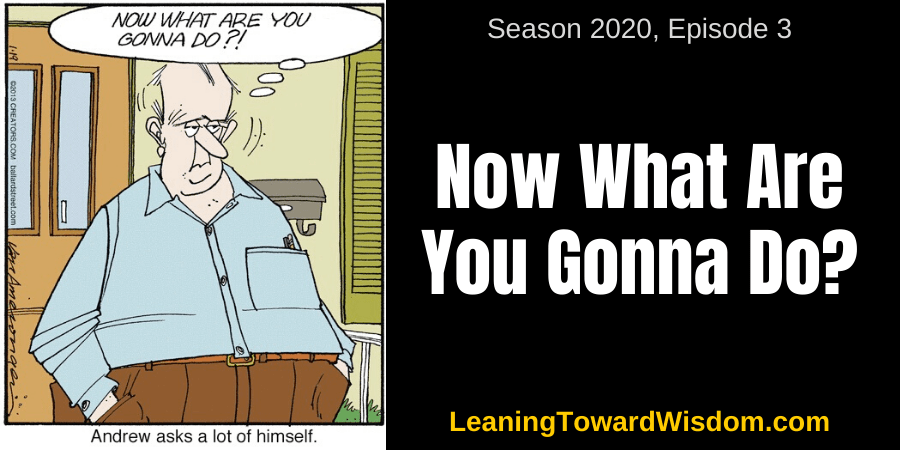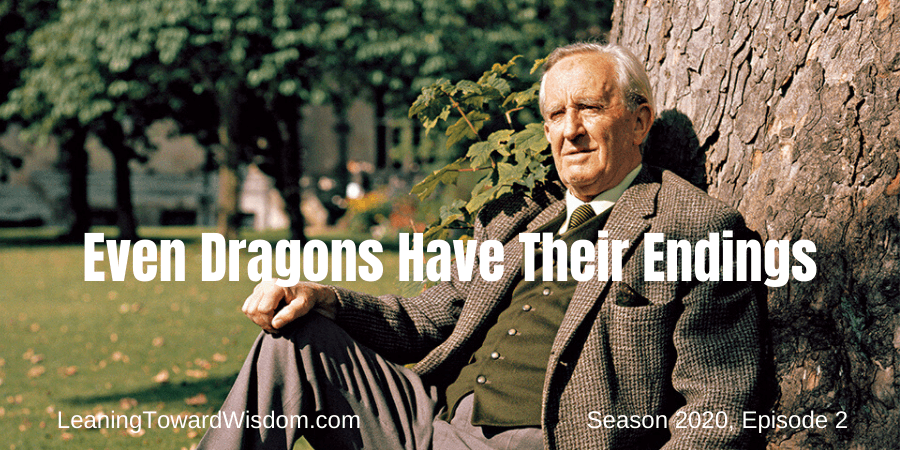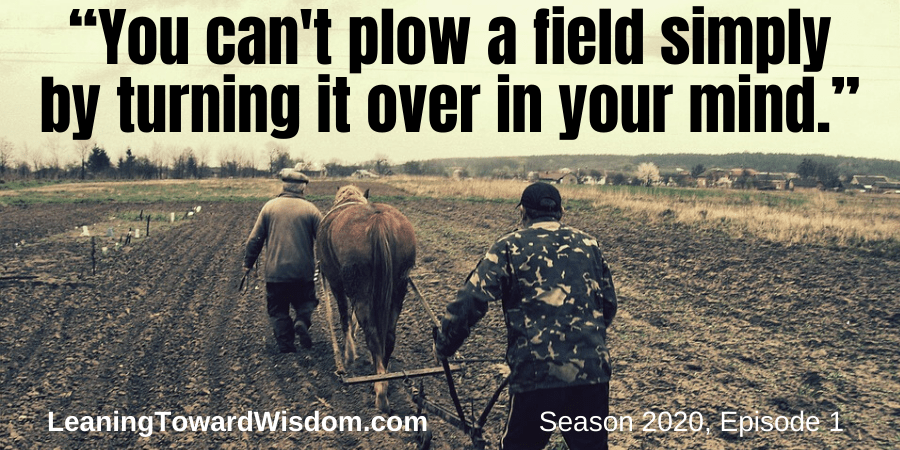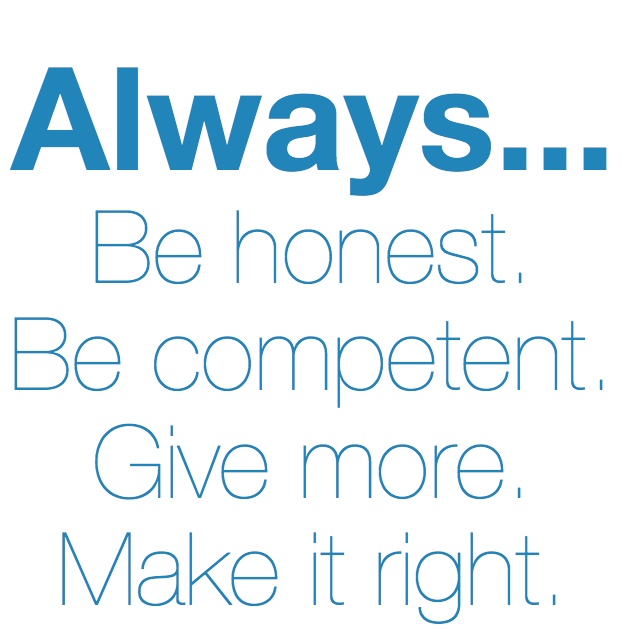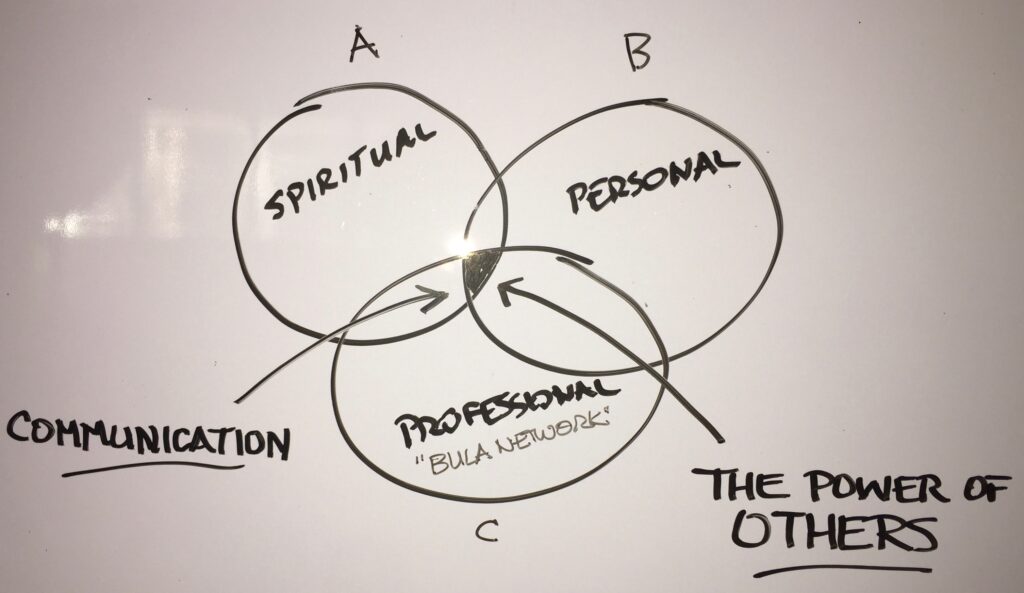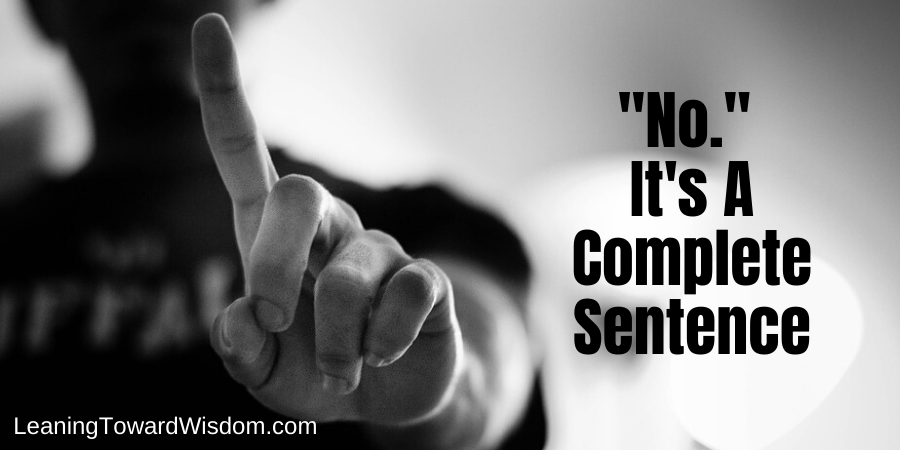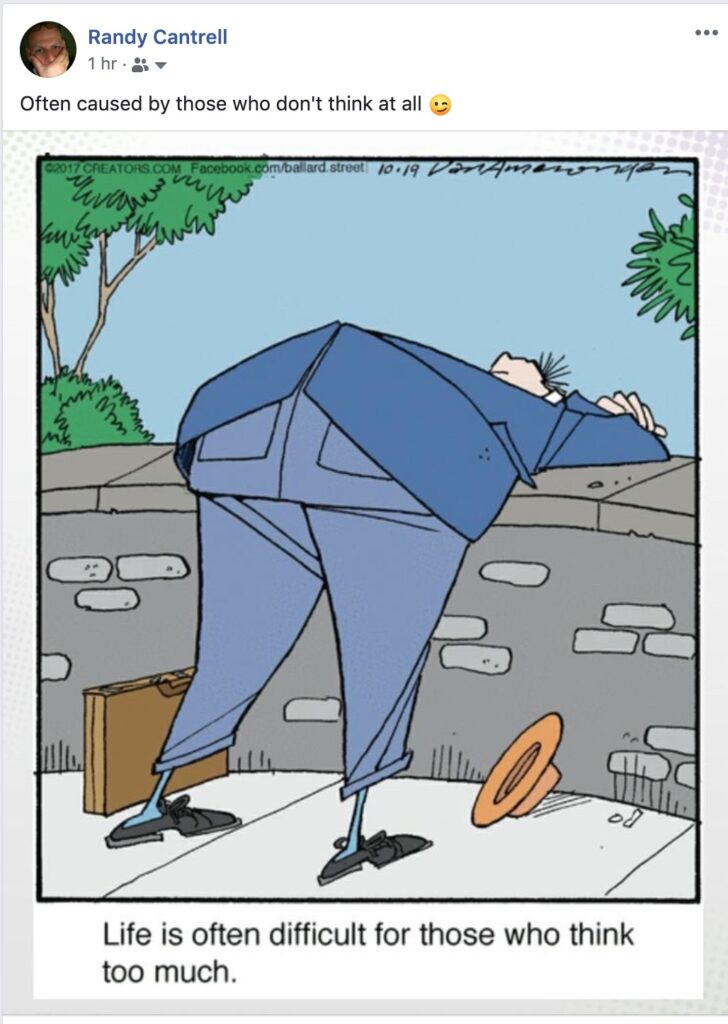Now What Are You Gonna Do? (Season 2020, Episode 3)
Podcast: Play in new window | Download (Duration: 1:46:54 — 147.0MB)
Subscribe: Apple Podcasts | Spotify | iHeartRadio | Email | RSS | More
How are those New Year’s resolutions working out for you? Have you given up on them yet? The odds are you’ve already quit. And if you haven’t, you will. Almost everybody does. Sad, huh?
Maybe. Maybe not.
There’s good news and bad news. Let’s start with the bad news. You won’t do anything you don’t want to do. Well, actually that can be good news if you think about it in more positive ways than most people do. Because…it means you can do what you want to do. It doesn’t mean you can do it well. You may not have the talent to pull it off. But you can still give it a go. The thought of an unprofitable outcome might help you change your mind and decide to give up on it. Like me playing the guitar for the past 40 plus years. Mostly I’ve been in love with the idea of being able to play. I’ve been far less in love with actually putting in the work. So it’s pretty clear I made up my mind. Learning to play the guitar has never been important enough to me – important enough that I wanted to put in the work to learn.
Freedom. We all have it.
Our freedom may be impacted by our circumstances, but only to the degree we allow it. We convince ourselves of things. Real and imagined things. You know the circumstance that has always ruined my desire to learn the guitar? Not being able to play anything well for a long time. I’m not foiled by the knowledge that I’ll never play music for money, or be recognized as a great guitarist. Those were never goals or dreams. The new times I’ve sat down to try to begin learning, the task seemed so daunting that I convinced myself it’ll be years before you can play anything enjoyable. I’ve never been able to mentally or emotionally move past the truth that I just don’t enjoy the process. And even though not all processes are enjoyable, we pursue the processes that take us toward something we really want. Seems my truth is, I really don’t want to learn the guitar. Else, I’d be learning. My truth? I really enjoy listening to and watching great guitarists play music. That’s where I get pleasure. The result? I listen to a lot of music. I love it and I willingly invest the time to listen to a lot of music every single day. I can easily prioritize my music listening in lieu of other activities like watching TV or reading a novel or any other thing.
The good news is you can do what you want to do. The hard part may be figuring that out.
The other bad news is that you can’t decide or choose for anybody except yourself. Deciding for yourself is challenging enough, but sadly we frequently spend more time hoping to change somebody else. Meanwhile, our own growth and improvement go unattended. We’re busy trying to drive somebody else’s car. Growing increasingly frustrated when it doesn’t work. They don’t do what we want. All the while, losing more and more of ourselves. Sometimes our life goes into the ditch because we’re not taking the wheel of our own life. Maybe it’s time to change that.
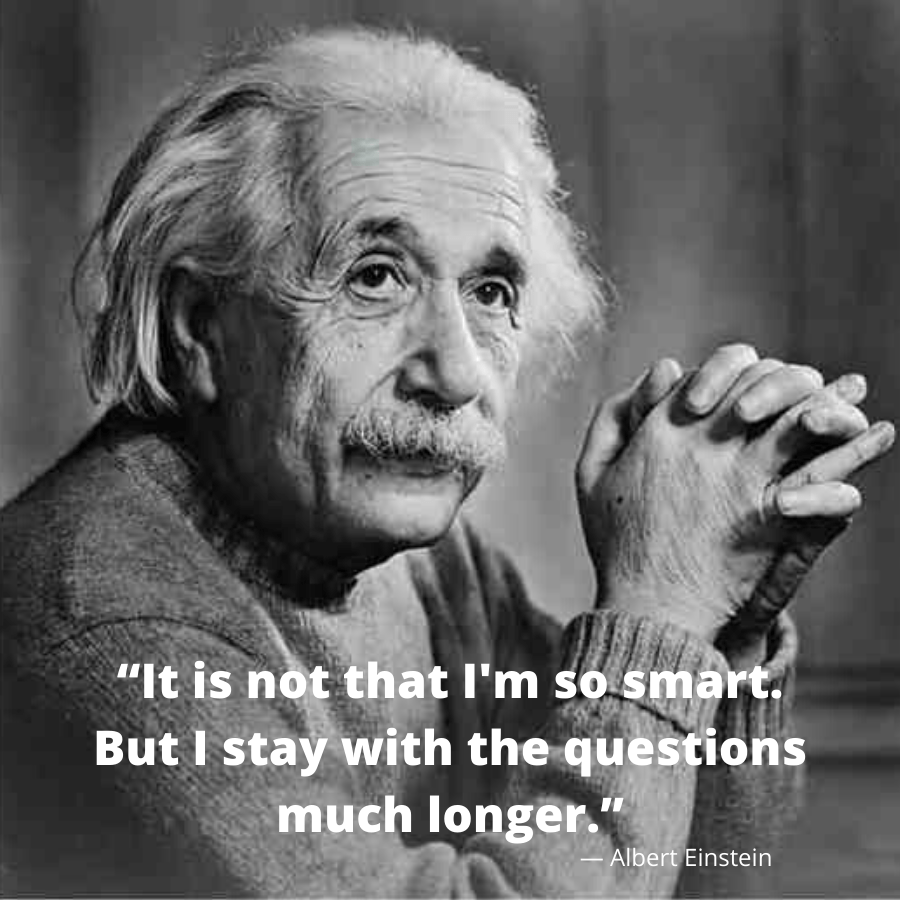
So now what you gonna do?
It happened. Something you never saw coming. Something you knew was coming. Something bad. Maybe horrible.
Life knocked you down and dragged you out back, beating you until you were so hurt you couldn’t get back to your feet. Not right away.
I don’t know what it is that attacked you. It could be one of a million things. Sickness. Death. Broken relationships. Money (or lack thereof). Job. Faith.
There is no area of our life immune from a crisis.
Before you can dive too deeply into answering today’s question there’s another – even more personal question to answer.
Who are you gonna do it for?
I hope there is somebody.
Think about them. Right now. Keep thinking about them. Embrace whatever feelings sweep over you. Spend a lot of time pondering the person – or the people. Why do they matter so much? What do they do for you? What do you do for them? Is your relationship with them growing? How is each of you bringing value for each other?
This person – these people – matter to you. They matter to you so much you’re willing to do things differently because of them. Love does that. It helps us not focus so much on ourselves. And more on others.
This isn’t about letting other people live our lives. It’s more a choice – giving permission – to specific people who we know care enough about us to help us be our best. Permission to influence us. Permission to help us. Permission to serve us. Permission to challenge us in ways where the only outcome is what’s best for us. In short, it’s about surrounding ourselves with people determined to help us live our best life.
That’s who we’re going to do this for because in essence…we’re doing this for ourselves. These people are helping us.
Where are you right now? And how did you get here?
How you got here is important because – well, this is Leaning Toward Wisdom so we’re intent on learning from our past. Not so we can berate ourselves or others, but so we can understand. There’s the word of the moment – UNDERSTANDING.
This is a quest for self-awareness.
The path forward – to figuring out what we’re going to do next – isn’t in looking at others. It’s looking at ourselves. Others serve us. Help us. But we have to put in the work on ourselves.
What work are we gonna do? How can we know what work to do on ourselves?
By better knowing ourselves.
Forget GPS analogies. How we got here doesn’t matter unless we’re lost…then it matters if we’re able to retrace our steps. Otherwise, it’s pretty useless.
Not so with our lives. Choices and decisions brought us to where we are. So if wonder, “How did I get into all this mess?” The answer lies in our choices and decisions. Understanding those choices helps us. Improves us. Gives us big opportunities to grow.
Wisdom is making the right choice in real-time. We’re in hot pursuit of how to do that better. So we need to learn from our past.
Facing fear. This may be job 1.
Frequently we’re afraid to face ourselves because we’re afraid. Afraid of what we might learn. Afraid of what we may find. Afraid of what we may come to understand. But the answers are always more valuable than the fears. Always!
Are you sitting down? Standing up? Either one is fine. Just don’t do this if you’re driving or on a treadmill. It’s preferable that you do it when you’re alone where you can avoid distractions.
Put your hands behind your head. Sit up straight.
Tilt your head back.
Close your eyes.
Take one deep breath through your nose. Breath in as deeply as possible. Your stomach should go in as much as possible.
Now release the air through your mouth. Slowly. Make your stomach go out as much as possible. Expel all the air out of your lungs.
Repeat this four more times. Five deep breaths.
Keep your hands behind your head. Keep your head tilted back. Keep your eyes closed.
Just breathe normally.
Do it for as long as you want. Some of you will want to pop your eyes open as soon as you end breath 5. Others of you may want to sit there for a few minutes or longer. Do whatever you want.
Make a mental note (or a physical note if you enjoy journaling) of how you feel. Is it different than how you felt before you began? Put words to how you feel.
Some words might leap to your mind. Calm. Comfort. Quiet. Maybe those are words that describe how you now feel.
If you’d like the opposite feeling…just for the contrast, then watch FREE SOLO, the documentary about Alex Honnold attempts to conquer the first free solo climb of famed El Capitan’s 900-meter vertical rock face at Yosemite National Park. Warning Spoiler Alert: It is harrowing. My hands are sweating just thinking about it. Some words that leap to my mind are insane, terrifying, idiotic, daunting, harrowing…and I’m at a loss for the panic I’d feel venturing up a rock face. It’s completely nuts to me, but Alex loves to climb. And he’s admittedly a little off. 😉 The summit is about 3,000 feet up. 3 hours and 56 minutes of exhausting climbing with nothing but his bare hands and rock-climbing shoe clad feet.
Terror and fear. It’s the opposite of calm, comfort and quiet – for me. Not for Alex. But while most of us are about “maximizing our longevity,” (that’s how Alex views it) – he’s not that interested in it. He’s more interested in performance and accomplishment than in happiness. Alex doesn’t experience fear the way I do. Or the way most people do for that matter. I get nervous climbing on the roof to clean my gutters!
After the climb, somebody asks Alex, “Now what are you gonna do?” His answer, “Probably hang board.” A hang board is a board he has installed in his van – the van he’s lived in for 9 years – with various size holes that he can stick his fingers in and hang, with all his body weight being held only by those fingers in the board. Sounds like a grand time, huh?
Okay, let’s make some progress here. These feelings – calm versus fear and all the others you may want to think about – spark within us a drive. Some desire.
Maybe the desire is to sit on our sofa and do nothing.
Maybe the desire is to go skydiving or something equally adventurous.
It could be anything. Literally. It’s the spark behind the verb, “DO.” Now what are you gonna DO?
Right now you’re afraid of doing something. Likely it’s THE THING you most need to do.
The fear may be overt. But it may be more subtle. It may just be not wanting to confront something or somebody. It may be not wanting to disappoint somebody. It may be having too much pride to fall on your sword and fix something you know you broke. It may be a reluctance to make the first step toward reconciliation even though you know it would be terrific. That’s the thing…
We mostly know – deep down inside – how much benefit we’d derive from doing THE THING. Us. Our life. We would benefit the most. Forget everybody else.
The thing I’ve been somewhat preoccupied with in recent weeks is self-awareness. Lots of people talk about it. Lots of people and companies offer solutions aimed at helping us better understand ourselves. There are tons of self-assessments. And assessments performed by others. I admit I’m a sucker for them, even if they lack great scientific backing. I’m still intrigued. If you’ve found a self-assessment you’re particularly fond of – let me know. I’d like to investigate it.
But that’s not my current preoccupation.
My current preoccupation is our self-awareness coupled with how we think about (and approach trying to reach) our ideal self. I’ve wrestled a bit with wondering if it’s possible to have self-awareness without simultaneously having a vision of what we’d like our ideal self to be.
Self-Awareness + Our Vision Of Our Ideal Self + Behaviors, Choices, Actions Aimed At Reaching Our Ideal Self =
Effective Self-Improvement
So there’s the context of the question, “Now what are you gonna do?”
First, what are you gonna do to increase your self-awareness?
Here’s a side note, some insider stuff. I’ve been listening to some previous episodes and reading some things I’ve written – all in a quest to figure out what I want to improve. See what I mean by combining self-awareness with a vision of our ideal self (or at least, a vision of our improved self)?
Well, I was looking to learn more about myself, but admittedly it was a quest to grow and improve. That’s when I began to wonder if separating the two is even possible.
I concluded that I wouldn’t focus as much as I wanted on what is truly my optimistic view of things. For example, I’d talk about or write about something with acknowledgment or commentary about the opposite. I want to stop doing that. Mostly because I don’t think it’s necessary and it’s useless. It doesn’t serve anybody. Like I could insert here about some people I know who are narcissistic and know it. They’re good with it. They don’t want to change it. They do think they’re better than most everybody else and it’s how they roll. They love themselves. Never mind that I can’t relate or quite understand it, but my habit (up to now) has been to mention such things — or point out such obvious things.
As I was looking into this mirror to better see myself I didn’t like it. It jumped out at me. Probably because I was looking critically at myself for improved self-awareness, but with a purpose – namely, to improve. So I made up my mind I wanted to fix it. My conclusion was to fix it by intentionally approaching all my content creation with a focus on positive improvement and growth. Others can focus on the ninnies and their behavior. 😉
Thinking inward is necessary if we’re going to learn to think outward. It’s the art of going from small (just us) to larger (others).
I’m very committed to that truth. I’ve not always practiced it as I should. Shame on me, but “Now what am I gonna do?”
Well, I’ll tell you what I’m gonna do. I’m going to change my focus. That’s right. I’m going to make up my mind that I’m not going to shift how I think about things. How I see things. Instead of thinking of what I want or what I think I may need I’m going to lean into two different approaches. The first is responsibility. I have responsibilities. To my wife. To my family. To those things that are important. But that’s not the same as thinking about what I want or what I even think I may need.
For instance, I might think, “I want to sell $30,000 worth of coaching this month.” Or I might say, “I need to sell $30,000 worth of coaching this month.”
That’s very different from, “I want to help at least 6 new people this month.” Or, “I want to help at least 3 new organizations this month.”
The first focuses too much on me. The others focus on the value I may be able to provide others.
Deep down I’ve always wanted the later, but the former too often snags me. The former is common. The later is unique. The uniqueness is where value is found.
It begins with facing the reality of who and what you are. My reality has been I’ve approached life – especially work – with an outcome that was focused on what I needed or felt I wanted (or needed). It was results-focused, but the recipient of the results was me. That’s not how I see my ideal self. It’s not how I want to roll. Nobody can change that except me. So here we go. That’s now what I’m gonna do.
Part of that is communicating in a more positive way. I don’t mean in some rose-colored glasses “everything is great” way, but in a way that’s more congruent with my true optimism that we’ll overcome our problems – or we’ll endure them and learn all we can from them. I’m not naive. We’re going to have trouble. Life is smacking us around – and it’s going to keep that up. Our charge is to figure out how to battle back so we survive, thrive and can help others do the same. That’s the entire point of this podcast. To help each other figure out how we can lean toward wisdom by getting it right in real-time.
The mirror work is hard but super valuable. It’s can often feel selfish, but you have to resist that thought. It’s one of the more unselfish things you can do. Mostly because until you come to grips with who you truly are, then you can’t grow, improve and become more helpful to others.
The most selfish people don’t likely spend any time in self-examination. Instead, they’re busy judging, being critical and thinking less of the rest of us. So we know we don’t want to be like that.
Working first on ourselves empowers us to help somebody else. It also fuels the humility needed so we can be more effective in that work.
Every time we face the reality of our struggles – and find people safe enough with whom we can openly share those struggles – we grow stronger in our capacity to help somebody through whatever they’re facing. When we fail to practice that staring into the mirror stuff – we’re unequipped to help somebody do that. We don’t know how to help them because we’ve not learned to help ourselves. That’s why selfish people provide the least value to others – and are mostly worthless to themselves.
To get to the “Now what are you gonna do?” phase we have to be busy looking intently at our own lives. Our own choices. Our own behaviors. And we have to do it against some standard.
I’ve got a few standards. As a Christian, the first standard is the Bible. Am I doing what pleases God? You may have a different priority standard, but I hope you’ve got one. One that is bigger than yourself. Or bigger than what you want only for yourself.
My other standard is based more subjectively on what I think I’m capable of. I could be wrong, but I’m always trying to gauge whether or not I’m able to be something or somebody that I’m not currently. Better. Stronger. More determined. More resolved. More of this. Less of that. It’s an avalanche of thoughts, ideas, and notions about what my ideal self would look like.
Both of these standards – one based on faith which is very objective, the other based on my personal viewpoints which are very subjective – speak to the overall goal: my self-improvement. My growth as a person.
Time is an important component, which is why I began the question with the present tense word of intensity, NOW.
My Truth, Your Truth, THE Truth & Coming To Terms With It
My truth is that nobody cares where I live. What kind of car I drive. How much money I make. Whether or not I can afford to dine out. Whether or not I can afford to take vacations.
Nobody cares about how I measure up.
Except me.
It can vex me thinking of how others might judge me. I can get fretful about how people may think something of me that I don’t feel is accurate.
My truth isn’t always THE truth. Neither is yours.
My truth and your truth are wrapped up inside our fears. They’re real. They’re powerful. They’re crippling.
The faster we can look at them and see them for what they really are, the better. The better for us. The better for our capacity to help somebody overcome their fears. The better for the value we can bring to our lives and others.
What I feel is true for me may differ enormously and only slightly from you, but over the years I’ve discovered we’re all far more alike than we’re different. It’s why love songs resonate with so many. It’s why stories of loss pull the heartstrings of most of us. It’s why some stories are more popular than others. They resonate with a wider audience. They strike a chord inside more people, giving evidence that we feel similar things. And for similar reasons.
That’s THE truth.
The truth is we’re all struggling with something.
We’re all feeling insecure about something.
We’re all worried about something.
We’re all crossing bridges we’ve not yet reached. Bridges we may never reach. But we worry about them all the same.
We’re afraid of letting others know we’re worried. Like kids who whistle in the dark, we think the sound of bravado will diminish our fears, but instead, it only elevates them. And our guilt in feeling like we’re hypocrites. Or imposters.
Telling the truth. To ourselves. To each other. It’s the powerful precursor to getting to NOW. And helping us face (and answer) the question, “Now what are you gonna do?”
I’ve struggled mightily for the past couple of years. I’ve had some personal challenges that I never thought I’d face. I’ve experienced some loss that I wasn’t ready for. But I’m not alone. You’re right there with me. Maybe you even responded a bit as I did. Looking for the biggest rock you could find so you crawl under it. Then I just hoped I’d died there. Well, I couldn’t find the rock. And I didn’t die.
So, now what are you gonna do?
My truth was shown to be nothing but a lie. Many lies that I was telling myself. Many lies that I thought were true, but they didn’t withstand the rigors of scrutiny. I’m betting many of your won’t withstand it either. Which is why we have to spend time staring into the mirror.
The other evening I had some show on TV about cops who use surveillance video to catch criminals. Some poor woman had been murdered. They’re looking at hours of video to see where they could last find her alive. Over the course of watching all that video, they’re looking more and more intently to make sure they’re not missing something. Some little mark on a vehicle is noticed by one of the officers. That one little detail opened their eyes to a possible suspect. Somebody who wasn’t a suspect until now. But now, armed with this little nugget of truth – brought about because they dared to look more closely at things to make sure they were seeing things accurately – now, they knew what they were gonna do.
Surveillance means “close observation.” It’s where we can often get it wrong in our own lives. We neglect to look long enough so we can see closely enough. And I know why, at least for me. I’m too busy comparing my own ineptness to the highlight reel of everybody else. I can think back over the course of my career and the failures leap out, helping me shortchange whatever successes I’ve had. Truth is, the successes have far outweighed the failures, but it doesn’t feel like that at the moment. At least not until I stop and glare more intently at the real truth.
No, in most moments I can more easily focus on those times when I struggled. Those times when I embarrassed myself. Those times I made a bad decision that resulted in a loss. They add up quickly in my head making me feel horrible. Inadequate. Worthless.
Question: How helpful are those thoughts? For me? For my wife? For my family? For anybody who I might want to help?
Yeah, we both know the answer. Those are the most destructive thoughts I can have because they do two very important – powerfully important – things. One, as a Christian they rob God of glory. The glory of having helped me thus far in my life. The glory of being God. Two, they rob me of gratitude. Gone is any thankfulness for blessings and good things.
Part of my truth is my view of humility. Maybe you suffer this. I can think humility should look and feel a certain way. Moments ago I was listening to somebody talk on a podcast not focusing on yourself but instead focus on helping others. And do it without expectation, he said. I was mentally agreeing with him. Then he went on to tell multiple stories humbly bragging on himself for helping others “anonymously.” And I’m thinking, “Yet here you are telling us all about it.” Know what I mean?
As much as I’d love to tell you that judgment (the harsh, critical kind) isn’t that easy for me. It can be. I’m human. I’m sitting here listening to this guy thinking, “Well, he’s at least good at promoting himself.” Honestly, I was envious because I’m awful at self-promotion.
But what if I’m wrong? What if I’m not seeing it for what it really is? What if he really is humble? What if what sounds to me like bragging isn’t so much bragging, but a story hoping to encourage others to behave with similar grace? What if he’s just trying to evangelize a point I so believe in – help others?
It dawned on me years ago that I’m so wired to dive into the problems of others – not to preach at them, or to tell them what I think they should do, but to help them figure out what they should do – that the rewards for me are immeasurable. It’s disingenuous to say I don’t get something from it. Truth is, I likely get more benefit than the people I’m trying to help. It makes me feel worthwhile. Valuable. Significant. Meaningful. When I engage in that work it makes me feel respectable.
My truth? Nothing else does it for me. Most other things make me not feel very good about myself. Innocuous things. Innocent things. Even productive, profitable things. So while I spend so much time on what I feel like I need or want… the truth is, I don’t spend near enough time doing what I should be doing in the areas where I’m strongest. Those areas where I’m in my “element” as Sir Ken Robinson writes in his book, The Element: How Finding Your Passion Changes Everything. He appropriately defines the element as the place where a person’s natural aptitude intersects with what they love. My element is rushing to help somebody figure out how to overcome or endure a problem. That’s my real, genuine truth.
It’s not altruistic either. I benefit. Greatly. Fact is, I can do it quite selfishly because it feels so good. What doesn’t feel good? Asking for and accepting help from others. It’s my Achille’s heel and I’ve not overcome it. Yet. But now I’m gonna give it greater effort. Because my self-examination journey revealed something else a few months ago. That’s the answer to why that’s my Achille’s heel.
It feels like imposing to me.
Like my wrong views about humility and self-promotion…I now believe I’m wrong about imposing. My entire life has been spent feeling badly imposing on others to help or serve me. I hate it. I can’t fully express how badly I hate it. I hate it as much as I equally love doing it for somebody else. Now, don’t get me wrong. I don’t like being imposed on, but mostly I agree with full consent to help people. I go out of my way to find people who are struggling. Ask my wife. I’m busy trying to help people. She often gets angry with me because she thinks so often those relationships are one-way. And I understand why she feels that way.
But what she doesn’t know – until now and then only if she listens 😉 – is that it’s entirely my fault.
I’m on the phone with a friend. They’re telling me about some problems. I’m leaning into it. At some point, they inquire about me. It takes me one nanosecond to turn the conversation back to their problem.
So I start looking more closely in the mirror about all this. And I reach some conclusions.
One, it’s mostly not gone very well for me whenever I have asked for help. Boy I know that sounds awful, but let me explain. So rare has it been for me to get meaningful help, I’ve stopped asking for much of it unless it’s very targeted, specific help. For instance, I had some car trouble – a check engine light that I didn’t know the meaning of. I ask a friend who happily and graciously connected his device to read check engine codes and he helped fix the problem. He went way out of his way to do so. That kind of specific help isn’t terribly hard (although it’s still difficult).
But pull back and let’s talk about something more significant. Something bigger. Something deeper. I don’t even attempt to get help. Experience has taught me that I’m not able, for whatever reason, to get any meaningful help. Proof of it happened just last week. I sent an email to somebody – we had already had a few phone conversations about my challenge (not really a problem, more of an opportunity). In the email, I specifically asked for some insights and advice. Two weeks later, still no reply. Not about that email. We had exchanged other emails. I even had other phone conversations. It never came up. So finally I emailed asking if he had received that email. His reply was typical of my experience. He said he had received it, but wasn’t sure what I wanted from him and was unsure of what help if any, he might offer. I closed his email thinking what I’ve long thought, “So it goes.” Which is why I remain focused on the problems of others and opt to go it alone with mine.
The deeper dive I did with myself involved asking questions (a common habit of mine). What if it’s not as it appears? What if I’m just asking people who aren’t wired like I am? What if they’re as uncomfortable offering help as I am at accepting it? What if they just don’t know what to say? Or how to say it? What if they’d love to help me, but they’re intimidated to help? What if (and this was a biggie that a friend helped me see) they don’t think I really need help because they see me as the guy helping others? What if that makes them think, “I can’t help him. He’s bound to have more significant people in his life who can better help him.” ?? Lots of good questions.
A truth I found out years ago is that very few people are wired like me. And I have mostly hated it. Hated being different. Hated being a guy who loves to go deep with people. Hated being a guy who embraces the battles others are fighting. Hated being a guy so confident that I might be able to fortify somebody, shore somebody up, give somebody encouragement to duke it out with their problems. Wishing instead that I was like I perceive (and that’s in important term) others mostly to be. Somebody who can avoid running into a burning building. 😀
A few years ago this little piece in Introvert, Dear appeared, 5 Reasons You Might Feel Unhappy If You’re An INFJ Personality. (I’m an INFJ, but not all INFJ’s are created equally)
The INFJ personality type is nicknamed the Counselor because we love to help others by listening and sharing our pearls of wisdom. However, inspiring others to reach their potential doesn’t mean that INFJs are immune to having their own problems. In fact, some INFJs may become so preoccupied with other people’s feelings that they forget to check in with their own needs. This can lead to INFJs neglecting their own problems and feeling burned out and unhappy. When INFJs do realize they’ve left some issues simmering on the back burner, they may turn to others for guidance and direction. But INFJs might be disappointed when the people they turn to can’t offer the same level of insight that INFJs can give to others.
As I wrestled those questions I asked the biggie, “Now what are you gonna do?”
I’m still working through the answers. Which is why I bring it to you today.
I know what I want to do. I want to get busy being more of my ideal self. I in no way measure up to that ideal today. And I never have.
For starters, the truth I know is that gratitude is THE answer. I need to be more grateful. For everything. Including the gifts I’ve got. My truth is, I don’t want to be different. I don’t want to be the guy who can hear somebody with a problem and look the other way. I don’t like to be around a lot of people but I crave one-on-one conversations where I can dive deeply enough to understand somebody and what they’re facing. I feel terrific knowing somebody trusts me enough to lean on me. It feels wonderful. And when you’re empathy would peg an empathy meter (no, there is no such thing, but I’d peg it if there were)…then compassion is easy. And I get most judgmental when I see it lacking. It’s the one time when being critical gets super easy. Unfortunately, it happens regularly. People ignoring people.
True confession: I often wish I could, but I just can’t. When you’re a noticer you can avoid noticing. It’s like trying to unsee something. Impossible.
In the world of content creation, there are multiple approaches you commonly hear.
Document. Share your journey.
Entertain.
Educate.
Answer questions.
The very biggest YouTube stars are so far outside my demographic that I can’t possibly get it. I’ve tried, but I’m just too old. Too experienced. And yes, too much wisdom. 😉 I still watch every now and again, but it just escapes me, proving once again, I know nothing. PewDiePie has 103 million subscribers. I’ve tried for years to get it, but I just can’t. So as much as I notice…I also notice I lack certain capacities. That includes the ability to understand or get PewDiePie and what makes him so insanely popular.
I bring this up because these things vex content creators. Even podcasters like me.
It speaks to self-awareness and aspiring to reach some ideal version of ourselves. And it doesn’t matter if you’re creating web-based content or not because it boils down to how we communicate. Namely, how can we communicate more effectively?
I think about PewDiePie way more than an old man should. He’s got 103 million subscribers, but he’s still almost 30 million shy of hitting T-Series subscriber count (an India-based music label and movie studio who beat PewDiePie to the magical 100 million subscriber count last May). One man’s ceiling is another man’s floor.
PewDiePie is a gamer. T-Series is clearly another entertainment-based channel. ALL the top channels are entertainment-based. No big shock. I knew that already. For years, I’ve joined the ranks of people who talk about how classroom teachers earn one amount, but keynote speakers and others who may disseminate knowledge in a more entertaining way earn far, far more. Context matters. A lot.
To be fair, looking YouTube subscriber counts is just one metric. And it’s a metric for a much, much younger demographic than the one I occupy. But I enjoy keeping up to date with trends and popular culture, even if I do often wonder what in the Sam Hill is happening!
It’s a great illustration of today’s point though because so much of our current comparisons are happening based on people and situations we don’t know about except through the Internet. It’s history.
When electricity was in its infancy, few people could understand how oil-based lamps would be outmoded.
When horse-drawn buggies and coaches were the norm, nobody would have believed a day would come where animals wouldn’t be involved at all in transportation.
When lumber-based construction was all we knew, only Mr. Acme of Acme Brick likely foresaw how pervasive brick homes would become. 😉
Such is life.
Everything is hard until it’s easy.
Here’s the head game that happens to us though. I’m using content creation merely to make the point. You can apply it to whatever it is you’re endeavoring to do.
Is the content here so much less valuable as PewDiePie?
Is it even worth doing this podcast?
Now what am I gonna do?
Other than keep looking for that big rock?
Oh, I’m still very much on a diligent search for the rock. Except now I know I’m looking for a boulder.
In the struggle to figure ourselves out better…while we search for what might better define our ideal selves…we have to stop comparing ourselves and start figuring out what things mean to us. Important things.
According to Forbes, 8-year-old Ryan Kaji is the YouTube earner with $26 million. He videos unboxing toys. I’m fascinated by it all, but I also am painfully aware that I’ve grown up using kerosene lamps compared to how my grandkids are growing up. It’s fine. Frankly, it’s more than fine. It’s how life works, except it’s working faster than ever today. And that speed is taking a toll on some of our humanity because all of us are blitzed with more and more stories by which to compare our own inadequacies. Looking at top-level achievers, in any arena, shows us just how pathetic we truly are. According to that Forbes’ article, the top 10 YouTube stars collectively earned over $160 million between June 2018 and June 2019.
I do two podcasts and have a big hand in a 3rd. I’m failing spectacularly well.
Or am I?
Yes, yes, I honestly am. Compared to many content creators. Measured by subscriber count. Or income dollars as a result of their content. But I don’t mind. Well, only kinda sorta. 😉
My truth – THE truth – is that I’m not chasing millions of subscribers or millions of dollars. I’m not wired for it any more than I was wired to be a professional athlete. Or a guitarist. I’m not that entertaining. Or passionate about something, which I’m world-class at, that attracts lots of people. And demographically – at least as far as YouTube is concerned – I’m all wrong. These can grab my attention just like all your truths – and THE truth – can grab yours.
But there’s another truth…
It doesn’t matter. Well, maybe more accurately…it doesn’t have to matter unless you let it.
The other truth – THE truth – is that I have experience and perspective no 8-year-old has. I don’t care how much money he earns on YouTube. And the truths keep on rolling.
I have some natural aptitude for communicating. So do you. We’re different perhaps. Maybe wildly so. But I have a voice that isn’t all that common. I’m unwilling (and unable) to modify it to reverse engineer what might be income-producing. My truth is that I’d rather do it my way than do it in a way that made money. Content creation for me – podcasting and writing – are more about getting it out of my head and into the ether so others can judge whether it’s valuable for them or not. It’s never been about monetizing it. That’s my truth, but that’s not the truth for the top YouTube stars. And it’s perfectly fine.
I can still throw the football in the backyard with the grandsons even though I was never Peyton Manning. His truth and my truth, when it comes to having a football in our hands, is VERY different. CBS Sports and ESPN are never going to pursue me to be on their air for millions of dollars a year. Up to now, Peyton doesn’t appear to care what they offer him. His truth is, he’d rather stay home. That may change. I may one day decide I’m going to figure out how to make money doing this thing. Sometimes we change our minds. Sometimes our circumstances change. Sometimes growth and improvement foster a change in our truth.
Sometimes we do want something, but we just don’t have the stuff to pull it off. I do not have the stuff to be a YouTube star, even if it were something I wanted. “A man’s gotta know his limitations,” said Dirty Harry. I know mine.
Yesterday here in Dallas Mark Cuban was on the radio and he was asked if Micheal Bloomberg gave any thought to losing $600 million to run for President. Bloomberg pulled the plug on his bid for the Democratic candidacy yesterday. Cuban admitted that no, he likely gave it no thought at all. He likely just moved right on. Bloomberg is worth over $60 BILLION. But what Cuban said next was even more interesting to me. He pointed out that if Bloomberg had more personality he’d have done better. Cuban said he thought Bloomberg might figure out a way to present himself larger, personality-wise. But he failed. And that’s that. Good-bye $600 million!
Meanwhile, President Trump hit social media with the message – doing what I did isn’t so easy, is it? 😀
Bloomberg found out he couldn’t defeat Trump, even though his spots kept telling us he was the only one who could.
In the battle of billionaires for the White House, Bloomberg is a major-league loser. See how comparisons work? Not very well.
Angela Maiers is a speaker and consultant whose message is powerfully simple: You matter!
She says “mattering” isn’t the strategy, it’s the agenda. Much of her work has been in the field of public education, but her message transcends any one arena. I agree with her. You do matter. We all matter.
Does your mattering depend on how much or how little somebody else matters? We both know the answer to that. Of course not. That’s ridiculous. Then why does all this noise get in the way of our self-awareness and our pursuit of our ideal self? Because we’re ninnies! Foolish ninnies.
All the more reason we need to lean harder toward wisdom.
The comparisons we all make stick us – worse yet, they cripple us. Well, more accurately, we give them permission to do that to us. We’re not as good as…we’re not as successful as…we don’t make as much money as…we don’t, we’re not, we can’t. But it’s a lie. It’s not true.
Truth. THE truth is we can do so much more. Maybe not as much as PewDiePie. But more. Better. We’ve not achieved our ideal self, but I fear too many of us aren’t even trying because we feel defeated before we start. If I wanted to start a YouTube channel (I have one, but it’s not very active and I have a face for audio anyway), I’m not likely going to ever earn $26 million in 20 years much less in one like that 8-year-old. So why bother?
Because my self-awareness and pursuit of my ideal self have NOTHING to do with an 8-year-old YouTube star making $26 million a year.
Because my self-awareness and pursuit of my ideal self have NOTHING to do with what anybody else is achieving or not achieving. My worth isn’t expanded or limited by others.
That means I have to be responsible. And accountable. To myself. To my family. To the world.
Daily I can choose to bring as much value as possible or to extract whatever I can get. Extraction is selfish, lonely and vanity. Contribution is the answer. Finding ways to contribute more is the process. It’s also the objective.
What do you know about yourself that’s absolutely true?
Include the things you’re not and the things you are.
Can you get others to corroborate your findings? Try.
Leverage assessments if you want. Use DISC, Myers-Briggs, StrengthsFinder and whatever else you want. I don’t personally view them as gospel, but I find benefit from them. Especially when the congruencies between them jump out. There’s likely smoke where there’s fire and all that.
Come to terms with it, but don’t use it as an excuse. This is tempting and it can be difficult to recognize when something is just beyond us versus when we’re just lazy and don’t want to do it. For example, I’m an introvert. I know that about myself. I’ve always known that about myself. But that’s no excuse for failing to network more effectively. No, it’s not my natural state. Yes, it empties my tank of every ounce of energy, but I’m able to do it if I need to. And I often need to. I’m not socially awkward. Most people don’t even think of me as an introvert because I don’t appear like I am. I can – and have – used this as an excuse. But if I’m going to face the truth, the truth is I just have to work harder than an extrovert at networking and putting myself out there.
All that also plays into why I podcast and why I love it so. It’s easy for me. Comfortable. Even energizing. Podcasting is great. Attending a podcasting conference…exhausting! That’s the truth.
Figure those things about yourself. Don’t lock yourself into thinking you’ve got it figured out and you’re done. We’re all capable of changing. That’s what growth is all about.
Figure out what’s core to who you are – like me being an introvert – and what’s not – like my ability to get better at networking, or figuring out more effective ways to do it.
Now for the super-duper hard part. Stop trying to be something or somebody you’re not.
This is where I see so many people make excuses. This is also where we’re tempted to ditch that whole ideal self pursuit. “Welp, this is just who I am,” we may say, refusing to even consider if we might be able to improve or grow.
“I’m just an alcoholic, that’s who I am.”
“I’m just a drug addict, that’s who I am.”
“I just can’t be faithful to my wife, that’s who I am.”
It’s not an excuse for bad behavior. Or poor choices.
Get very clear on the ideal version of you. Don’t worry about aiming too high. Aim high. After all, it’s an ideal we’re aiming at. Doesn’t mean you’ll ever get there, but you can still aspire to it.
Use your bad behavior as an excuse and you’ll lose. Along with everybody else in your life. You’ll neglect thinking about your ideal self. You’ll avoid putting in the work to fix what ails you or to grow and improve your life.
“Now what are you gonna do?” Hopefully, the answer isn’t, “NOTHING.” I’m not going to do one stinking thing to improve. I’m happy just the way I am.
Well, I’m not. I’m not happy for myself at all. I’ve got A LOT OF WORK to do. Truth is, I may not live long enough to make a sizeable dent in the work I need to do.
The option isn’t acceptable to me though. To neglect the work. To avoid the effort. To not even try to be better.
Figure out your ideal self. What would you like to be? If it’s the ideal YOU then it’ll be congruent with who you are and it won’t be something completely different.
I’m never going to enjoy big gatherings. Or small talk. Or hearing somebody hint at some problem and saying, “See ya later!” It’s just not the fabric of who I am.
But within the fabric of who I am I know I have unlimited potential to be better. More impactful. More helpful. More significant. Life these days is working to figure out how to do that.
Let me wrap this up by mentioning the benefits of restriction. Culture tempts us with cliché truths that aren’t true at all. “Go big or go home.” The sentiment is to go broad. Shallow is fine but go wide. More is better. In business, I see it all the time. People struggle to niche down narrow enough. They resist going narrow and deep because culture has conditioned them to think that won’t work. And there’s too much copying going on. In everything. From manufacturing to music to YouTube channels – people are trying to reverse engineer the achievements and success of somebody else. Problem – we’re not them. Another problem – narrow works. Limitations and restrictions have high value.
Less is more.
Our lives get cluttered with stuff. Our heads get cluttered with ideas, thoughts and feelings. Our relationships get overly complicated with emotional baggage and selfish expectations.
Learning the value of limitations and restrictions can be liberating, invigorating and inspiring. Our hearts crave simplicity, but our head tells us it’ll never work. Our heads are wrong, filled with too much cultural pressure. We’re listening to the Pied Piper of Ninnie-ism. 😉
Here’s where this can positively impact your life — you realize it’s fine to only have one superpower. It’s not about what you’re not, but it’s more about what you are. I know you want to be all things to everybody in every situation. You want to be insanely successful in your career earning a maximum amount of money. You want to be the life of the party. You want to be the coveted lover. You want to be popular and highly respected. You want too much. Time to put limits on ourselves. Time to really restrict ourselves.
Go narrow. Go deep. But do it in areas that are totally congruent with who you truly are. Find your element – where your natural aptitude intersects with what you love. Figure out what you do really well – that comes naturally to you – and what you really enjoy doing. Now, get better and better at that. Find the path toward your ideal self.
That’s where our journeys are uniquely our own. I’m not you. You’re not me. We each have to put in the work to answer the question, “Now what are you gonna do?”
I just hope that today’s show helped inspire you to answer it and get on with it.
Randy
P.S. Here’s a 2014 TED talk that may inspire you a bit. It’s by journalist David Brooks. He asks a great question, “Should you live for your resume…or your eulogy?”
Now What Are You Gonna Do? (Season 2020, Episode 3) Read More »
